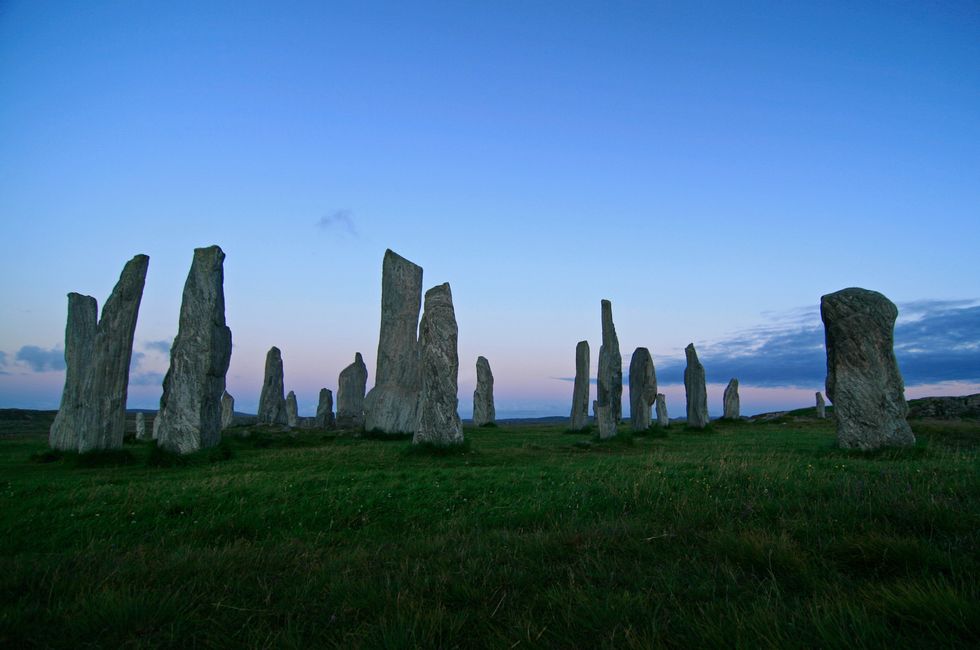I have an amateur fascination with history. When I mention this interest offhandedly to friends or peers, much of the time I get the response of, "Oh, I love World War 1" or "The Revolutionary War was really incredible" or something similar. I will never deny that these statements are true. But the issue with such responses is that the 20th century - and even further back in the 1700s does not feel quite as historical to me yet, perhaps because it is so evident even in our daily lives. If I wanted to, I could easily go to my grandparents' homes or even my great-grandmother's and I could ask about the early and mid-1900s and I would get first-hand accounts of what was happening. I could go to the library at my school and have countless copies of letters written and well-preserved artifacts from the earliest years of this country. I even have relatives who have kept belongings of my ancestors from before America was colonized by Europeans.
We as a society have videos and diaries and first-hand accounts of life occurring in these time periods. As incredible as that is, the readiness and availability that these time periods have due to these resources eliminates some of the mystery, allure, and fascination that comes from more distant history. I love instead the idea of finding the tiniest pieces of a lost people and trying to put together a picture of their lives. I like reading articles about the incredible architecture of the Underground Churches in Ethiopia, the incredible advancement of water systems in the Indus River Valley, and the stories of the origins of the celestial globe by the ancient Greeks. I love the study and intrigue that comes from years of scholarly arguments and archaeological digs bringing up evidence to support one theory or another. I love seeing the words "probably" and "most likely" in these scholarly articles, perhaps because it is such a vivid reminder of how fleeting and small our place on earth actually is.
The Greeks ruled the Mediterranean and held sway over North Africa and the Middle East for hundreds of years. The Mayan Empire was one of the most innovative and well-organized to exist. One has to at least admire the tenacity and brilliance that must have existed to accomplish these feats, even if we know barely anything about their culture of the time period. I find it fascinating, that such a massive, powerful, and influential people can be so unknown now; you would think that such power might make them and their legacy last longer. Again, the remainder of the fragility of existence is stark, bittersweet, and humbling. The idea that the only things left of something so massive only being scraps and stories is striking in the quietest way.
The fact that such small scraps are all that is left is another thing that I find amazing. I am a storyteller. I grew up as the oldest of my siblings and cousins, listening to the tales of my elders and retelling them to my younger cousins and brother. The kids I babysit fall asleep to my voice reading to them, and the students in my classroom at church listen to the Bible through my words. I have made the decision to major in English and Creative Writing as a way to further that aspect of who I am. The stories that we tell make up our histories and sometimes our futures. Our stories are our legacies. Maybe that is why I love learning about these lost civilizations so much - their stories are mysteries that are waiting to be told, legacies waiting to be remembered.
There is something beautiful about being able to participate in the knowledge and telling of those stories, even in such a small way as having an amateur interest.






 Photo by
Photo by 







